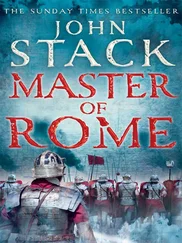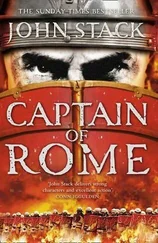Atticus rode in a chariot directly behind the consul, the place of honour insisted upon by a grateful Duilius, even after the captain had requested leave to return to his galley. Many in the crowd recognized Atticus from the stories told by the orators that Duilius had hired to spread the tale of their victory all over Rome, and they called out his name in tribute. Atticus acknowledged the cries with a nod, unsure of how to respond as he kept his right hand firmly on the reins, his left gripping the shaft that held aloft the new banner of the Classis Romanus.
Atticus smiled inwardly at the sound of Roman voices heralding a Greek name, and his thoughts returned to the constant conflict of emotions that symbolized his loyalty to Rome. On this of all days he couldn’t help but feel part of the surging crowd that surrounded him on all sides, their cheers infectious, their own unquestioning loyalty to Rome impossible to ignore. It was a city like no other, populated by a race of men who constantly strove to expand their world at the expense of others, and Atticus looked over his shoulder to see what that ambition had wrought. An army of slaves followed behind, carrying the bronze rams of the captured enemy galleys, rams that would adorn a new column being raised in the Forum to mark Rome’s victory.
Atticus turned once more as the parade came to a halt at the foot of the steps of the Curia. He watched as Duilius dismounted from his chariot, his arm raised once more as the renewed cheers of the crowd mixed with the constant clarion calls of a thousand trumpets. The consul turned slowly to face Atticus, gesturing with his hand for the captain to join him on his triumphant walk up the steps of the Curia. Atticus stepped forward, never relinquishing his grip on the banner of the Classis Romanus as, side by side, the two men began their climb.
The sound of distant trumpets sent Marcus running up the steps leading to the parapet above the main gate. His heart soared at the sight before him, the long train of red- and purple-clad warriors approaching to the sound of drums and cheering from the men within the encampment. Two days before, on the ninth day, a troop of fifty Roman horsemen had reached Makella with news that the legions were following on a forced march from Brolium. The camp had cheered at the news before unceremoniously slaughtering the cavalry’s fifty mounts, the horse meat sustaining them as they waited for the coming rescue.
The gates below Marcus were opened without command and the legionaries of the Ninth spilled out to line the road to the camp. Marcus recognized a tall centurion accompanying the first maniple on horseback, his gaze steady, his back straight in the saddle. He rushed down from the parapet and pushed his way out into the middle of the road, standing with arms akimbo, a broad smile across his face. Septimus spotted Marcus immediately. He issued a terse order over his shoulder for an optio to take over, before dismounting and covering the last few steps on foot, his determined stride marked by a pronounced limp. Septimus had requested temporary leave from the Aquila , a request readily granted by Duilius; Septimus had arranged to be in the vanguard of the force that would relieve Makella and Segeste, wanting to personally discharge his promise to his old commander.
Marcus strode up to Septimus, his hand proffered in comradeship.
‘Welcome to Makella, marine,’ he said with a smile.
‘You look hungry,’ Septimus replied, shaking the centurion’s hand, marking the last time they had exchanged the gesture and the vow that was now fulfilled.
Scipio swallowed another mouthful of wine as the sound of the cheering crowd washed up from the Forum half a mile away. His town house was deserted, the servants dismissed, his guards commandeered for the triumphal parade of Gaius Duilius. Scipio’s hate swelled inside him at the thought of the consul’s name, a man who had taken everything that was rightfully his. He vividly remembered their last encounter on the deck of the Carthaginian flagship, the look of disdain and disgust on Duilius’s face, his dismissive tone as he ordered Scipio to be taken on board the Aquila , his rank of senior consul ignored. He also remembered a similar look of victory and success on the face of the young Captain Perennis as he stood amongst his battle-hardened crew. It was a sight that was for ever burned into Scipio’s soul.
The triumphal parade was coming to a head in the Forum Magnum, the crowd being whipped to a frenzy as Duilius marched victoriously up the steps of the Curia. Once there, the Senate would crown him with a golden wreath of olives, an everlasting symbol of his victory. Scipio retched at the sight in his mind’s eye, at the thought of the accolades stolen from him through deceit and betrayal. There was even a proposal before the Senate to award Duilius with a cognomen, an honorary title in recognition of his victory. Scipio’s political rivals had already bestowed on Scipio a cognomen of his own: Asina – ‘donkey’ – in recognition of his ignominious defeat at Lipara.
Scipio stood up suddenly as a figure entered the room. It was Fabiola, his wife. She approached slowly, her expression hard and cold. She took the goblet of wine from his hand and laid it gently on the table.
‘You were betrayed,’ she said simply.
Scipio nodded and sat back down, his hand reaching for the wine goblet again.
Fabiola stayed his grasp before taking his chin in her hand, raising his face so she could look him directly in the eye.
‘You were betrayed within this very house, by one of your slaves, a man in the service of Duilius.’
Scipio absorbed the words slowly.
‘You know his identity?’ he asked.
‘Yes, and he is oblivious.’
Scipio nodded, understanding immediately. If the traitor within his midst was unaware that his true identity was known, Scipio could manipulate the information Duilius received. He smiled at the thought, his expression mirrored in the face of his wife. Scipio closed his eyes as the cheers in the Forum reached a crescendo. For the first time the sound did not disturb him, and he filtered out the noise to allow his mind to focus on the faces of his enemies, the faces of senators and a naval captain, enemies that would pay dearly for their disloyalty and betrayal.
Gisco roared in agony as a second nail was driven through his right hand. The hangmen worked with silent efficiency, ignoring the grotesque, maniacal expression of their charge as they bound his wrists to the crosspiece. Hamilcar viewed the condemned admiral dispassionately, his disgust at the obscene ritual hidden behind a cold expression. Only yards away, Boodes screamed a silent scream as the garrotte around his neck was given one final turn. He collapsed to the ground, his swollen tongue purple from strangulation. Two guards walked forward and lifted the lifeless body of the former squad commander, throwing it onto the fire already fuelled by the bodies of the six other commanders of the fleet.
The hammer blows continued as Gisco’s feet were nailed to the sides of the cross, the position designed to support the upper body and prolong the agony. Gisco’s screams of pain continued unabated, the strength that had carried him through life depriving him of the oblivion of unconsciousness. The cross was hoisted up and made fast, the transfer of weight onto Gisco’s tortured hands and feet robbing him of every vestige of dignity, and he begged for the release of death.
Hamilcar ignored the cries, turning his back on Gisco to look out over the harbour. Ninety-six galleys lay at anchor in Panormus, ninety-six that had escaped the disaster at Mylae, a hollow prize given the loss of so many. Hamilcar would report the summary execution of Gisco, the admiral’s life a token consolation, along with a request to the Council for full command of the campaign to be given to him immediately. His first action would be to summon the fleet at Malaka on the southern coast of Iberia, a fleet of one hundred and twenty galleys that could be in Sicilian waters within a month.
Читать дальше
Конец ознакомительного отрывка
Купить книгу











